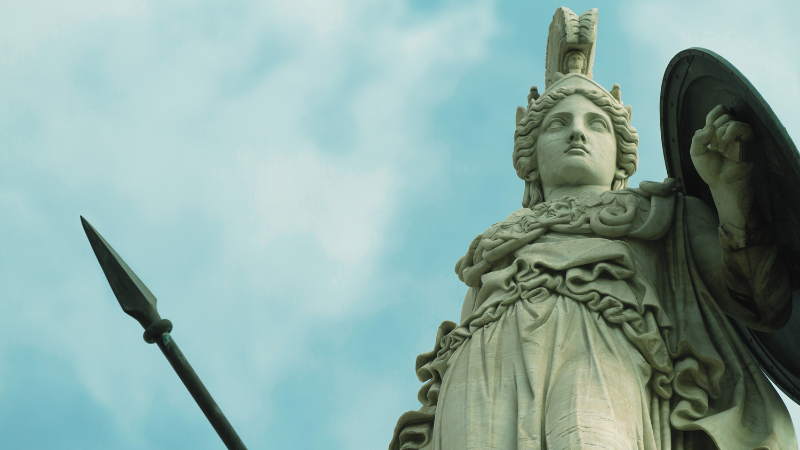How Often Do Men - and Women - Think About the Roman Empire?
A recent social media trend saw women around the world asking their male counterparts how often they thought about the Roman Empire. Apparently the answer was “a lot.”
Many reasons were posited for this, but at the risk of oversimplifying the explanations given by various experts who weighed in on the trend, the basic reason stemmed from men’s desire to connect with the masculinity that the ancient Roman world seemed to embody. Indeed, it’s hard not to think of those headliner Roman men—the Caesars, the centurions, the gladiators—and not get a whiff of testosterone.
That’s fair enough. Unlike many of the opinions I’ve seen on this, I don’t automatically assume this is some kind of sad macho fantasy. I think many men are drawn to the (admittedly idealized) Roman man—to his strength, sense of duty and family—and I understand and appreciate that.
What did kind of chafe me, though, was the implicit suggestion that all women were somehow puzzled by their man’s fascination with this, and that women didn’t think about the Roman Empire at all. We’re too busy, it appears, thinking about what our husbands and boyfriends are thinking about and then giggling at those silly, silly boys.
Which of course is nonsense. How often a woman thinks about the incredibly significant historical period of the Roman Empire, and its continuing relevance in our modern world, depends on the woman. If she’s a Classicist, historian, archaeologist, engineer, architect, artist, philosopher, wardrobe or set designer, vintner, museum curator or about a gazillion other professions, she probably thinks about it a lot.
As an author of historical fiction set in ancient Rome, I don’t just think daily (or hourly) about the Roman Empire, I think about the kingdom and republic of Rome too. And I think about those things a lot.
So do my readers and the readers of other historical fiction authors. And so do many women who don’t read historical fiction at all, but who are simply educated, worldly, curious or interesting enough to think about such things.
And it isn’t just a fascination or appreciation of the history of the time. It isn’t just those luxuriously tiled baths that we all try to emulate in our en suite bathrooms. It isn’t just those gorgeous dresses and that dripping gold jewelry. It isn’t just the muscly gladiators and sharp-dressed soldiers.
It’s something deeper, more... dare I say it... spiritual. Many people—men and women—are drawn to the “old ways.” Many feel a sense of connection and belonging there, and an appreciation for the culture, philosophy, mythology, and religion of the ancient Roman and Greco-Roman world.
Indeed, there is something very compelling about the scope, nature, and nurture of Roman gods and goddesses. There’s one for just about everything—Jupiter for the skies, Mars for the battle, Neptune for the sea, Venus for love, Vesta for the sacred flame... and so many more. That kind of polytheism comes natural to many people. It’s why the Catholic church created its list of various saints who serve the same purpose.
And then there’s the more or less equal billing that gods and goddesses commanded. We have the elemental Mother Earth (Terra to the Romans, Gaia to the Greeks) with her male counterpart Heaven (Caelus to the Romans, Uranus to the Greeks), and of course the pantheon of 12 Roman deities that most people are at least somewhat familiar with, headed by Jupiter and Juno, divine husband and wife.
To the ancient Romans, a goddess was just as powerful as a god. Husbands bent their knee to Mother Juno and prayed while their wife was in childbirth. Hunters prayed to Diana, soldiers to Minerva. In the faces of their great goddesses, men found maternal comfort and strength in equal measure.
And women who gazed upon the faces of Roman deities—on larger than life statues, shimmering mosaics, and colorful frescos—saw their own faces reflected back in the form of goddesses they could connect with on that female level.
When the richness of that innate spiritualism was suppressed—which it was, and violently so under the first Christian emperors—something was taken from men and women.
Perhaps that has something to do with the reason why so many men and women feel drawn to the ancient Roman world.
Or perhaps it’s just the muscly gladiators after all :) Thank you for reading.

